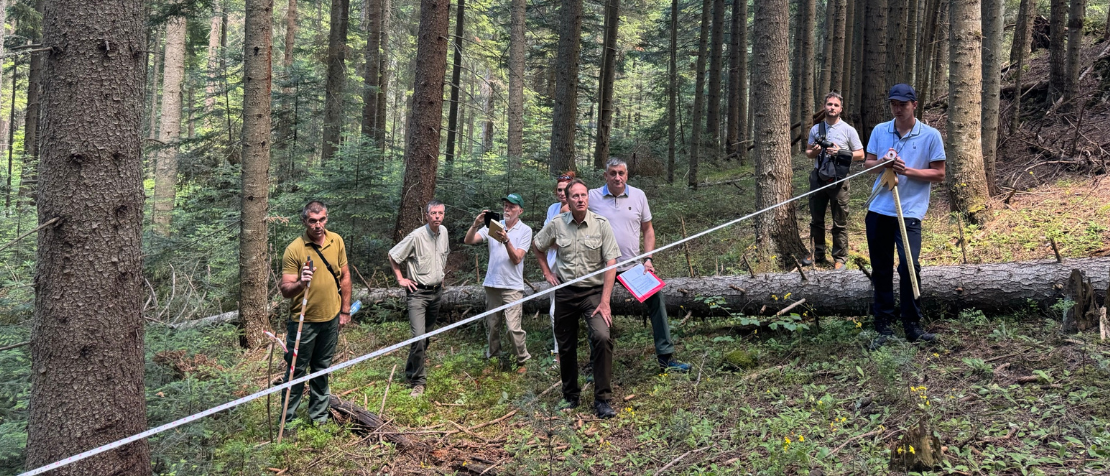Montenegro positions itself for new approaches in private forest management planning and monitoring

©FAO/Jovana Sukovic
An ongoing initiative by the Food and Agriculture Organization of the United Nations (FAO) is backing Montenegro’s pursuit to improve forest management planning and monitoring in the country’s private forests.
The first national inventory of Montenegrin forests collected data between 2010 and 2011. The results, published in 2013, gave a baseline of the state of the country’s forests. It estimated that forest cover was at almost 70 percent of the land in the country. Recent analysis of data since 2000 on treed land cover shows a steady upward trend as shrubs and trees have naturally encroached onto abandoned or disused agricultural land and developed into wild forests and woodlands. This trend is often considered beneficial because it helps to restore previously lost forest ecosystems and habitats for wildlife. Montenegro’s forests are located partly on very steep and rocky slopes. For-ests in Montenegro are crucial assets serving productional purposes for wood and non-wood products, as well as environmental and ecological, and social functions. About half of the country’s forest areas belong to and are managed by private owners.
In the framework of the FAO project, Montenegro’s Ministry of Agriculture, Forestry and Water Management welcomed representatives of Slovenia’s Ministry of Agriculture, Forestry and Food, the Forest Service, and the Forestry Institute from 17 to 19 June 2024 in Montenegro, for a second time to discuss new approaches to forest management planning and monitoring in private forests.
The programme included a field visit in Montenegro’s Forest Management Units in the northern region of Pljevlja and in the capital, Podgorica, to demonstrate current practices in forest stand inventory for forest management planning purposes and to exchange experiences on-site. Preparation of the forest management plans for state-owned forests that are currently in place and modalities for potential implementation in collaboration with FAO and Slovenia for improving the inventory and planning processes were discussed.
In addition, a workshop organized in Podgorica and facilitated by FAO Forestry Officer, Norbert Winkler-Ráthony, focused on technical issues for a simplified approach to forest management planning and monitoring in private forests, as well as on the possible outline of the forthcoming second national forest inventory as part of the forest monitoring system.
Slavisa Lucic, Director of the Forestry Institute, opened the discussion with a presentation on the current methodology for developing a forest management plan. Primož Simončič from the Sloveni-an Forestry Institute demonstrated the country approach to the forest national inventory, followed by a presentation by the Director of Montenegro Taxus Forest Project, Ilija Krejovic, on the proposed draft methodology for the second national forest inventory for Montenegro. Lauri Vesa, FAO Forest Inventory Expert, introduced alternative technical approaches to the private forest management planning, followed by a contribution from Matjaz Gucek from the Slovenia Forest Service about some specificities of Slovenian private forest management planning and the realization of planned measures. Robert Rezonja from the Slovenian Ministry concluded the workshop with a presentation on challenges and opportunities for silvicultural planning in private forests in Slovenia.
The discussions and exchange of good practices, state-of-the art methodologies, and experiences of applied approaches resulted in selecting two pilot forest areas under private ownership as test cases for the implementation of a simplified approach for planning and monitoring of private forest management. The workshop closed with the optimism that cooperation will proceed during the preparation of the methodology for the development of the management plans for private forests and the second national inventory.
Forestry
International network plans action against invasive species in urban forests
Better land policy and management on the horizon for Montenegro
FAO, Montenegro prioritize better natural resource management and inclusive rural development
